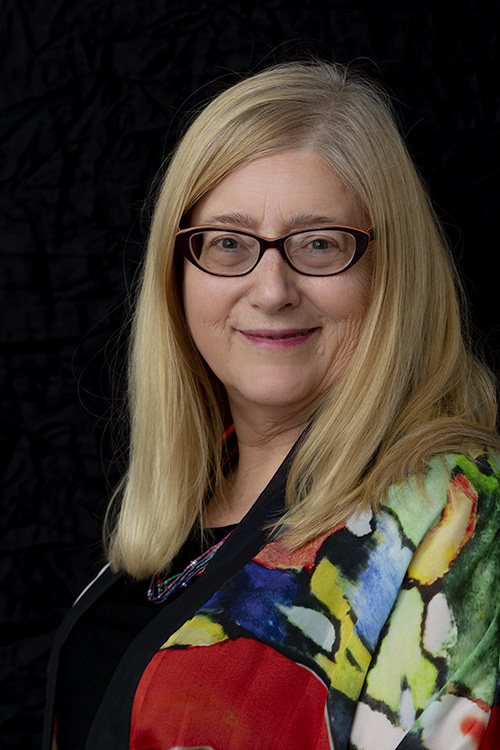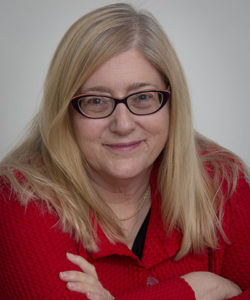Learning and Sex Until Rigor Mortis
The Life of Maggie Kuhn
We sit at home in the pandemic with the one job of keeping our breath separate from the breaths of strangers. This gives us time to make friends with the books on our shelves that had been passing acquaintances. Intrigued by a few famous quotes from Maggie Kuhn, founder of the Gray Panthers, I ordered her autobiography some time ago. It joined the ranks of the unread on my shelves – what my partner refers to as “Mount to-be-read.” This week I took it down and read it, and I’m glad I did. Kuhn was a pioneer of the rights of older women, and in particular our sexual rights. She led a fascinating life that can still inspire us.
Maggie Kuhn was a powerful social justice advocate. She wrote No Stone Unturned in her mid-eighties, when she had survived everyone in her family, when her body was frail and she lived in full view of mortality. It is an exuberant book, full of the life of the senses, the sounds and smells of a railway platform, the loving touch of a partner. She was born in 1905, when expectations for women’s lives were clear and limited. But Maggie Kuhn had no interest in marriage or children (early on, she almost eloped with a lover, but chose not to show up). Instead, she built an original life, finding and creating opportunities to use her drive and her talents.
Kuhn was inspired by the women in her family. “There was an independent streak among the women in my grandmother’s house,” she wrote. “My Aunt Lou, who was widowed fairly young, was known to have a lover across the Canadian border. Every once in a while, she would go off on a vacation by herself. It was never discussed, but everyone knew where she was going.” Kuhn took that independence to heart. Of her erotic life in college she wrote, “I enjoyed sex and I never questioned my right to it.” When people asked why she never married, Kuhn would answer, “Sheer luck!” !” It was a revolutionary view for that time.
After college Kuhn volunteered with the YWCA, which was then a strongly feminist organization. She wrote, “It is hard to convey today how exciting a national women’s organization on the scale of the YWCA was in the ‘30s and ‘40s.” After volunteering for a year she was hired for a staff position. In her career with the YWCA, Maggie Kuhn educated women about women’s issues, unionizing, and social issues. She also taught a course on women’s sexuality that covered the importance of women’s pleasure, a controversial topic at the time. During World War II, Kuhn became a program coordinator for the YWCA USO division. She was an advocate for women factory workers in the war effort, who often were poorly housed transients with little access to childcare.
Throughout her career Maggie Kuhn wrestled with social expectations about a woman’s role in a family. Even though she avoided the responsibilities of a married woman, as a single woman she was expected to care for her aging parents. She also had a younger brother with health challenges who lived in her home as an adult. He would often ask her, “Why don’t you stay home and take care of me?” Kuhn was resourceful in finding people to care lovingly for her brother during her frequent business travels. She invited young people to stay in her large home in exchange for providing care. At the end of her brother’s life, when he was in an irreversible coma, Kuhn chose not to authorize further treatment for him. She had to sit at his bedside in shifts with her friends to ensure those wishes would be respected. Kuhn believed in the right of people of all ages to lead a fulfilling life, but she did not believe life should be extended when it could no longer be enjoyed.
In the 1950s and 1960s Kuhn worked for the Presbyterian Church, where she took on roles that had seldom been offered to women. She guided the denomination toward greater involvement in issues of social justice, such as the Vietnam War and federal health insurance. One of the many causes that attracted her attention was the rights of the aging, which she championed long before she grew old. She participated in a White House conference on the aging in 1961 and then pressed her denomination to involve residents of its elder homes more fully in decision making.
Kuhn also conducted an affair with a married minister, about which she writes openly. “Many women who become involved with married men sicken themselves with guilt. I did not. I was troubled occasionally by the thought of his wife, but probably not enough. There are so many rules that govern our lives. But there are certain natural urges and strong attractions that overpower the rules. Sometimes you act on those urges and sometimes you don’t.” One of the great things about Kuhn’s memoir is her candor about her love affairs. “I had a reputation for being a real snake charmer with men,” she wrote. Even in her eighties, she describes a man friend taking her hand and saying, “When are we going to have our affair?”
The Presbyterian Church forced Kuhn into retirement at 65, when she had plenty of energy and no interest in slowing down. Along with other olders, she founded the organization that came to be known as the Gray Panthers. Everything she had learned and done in her decades of community organizing prepared her for this moment: her writing, her public speaking, her emphasis on horizontal rather than hierarchical organization, and her belief in the rights of persons of all ages, races, classes, and genders. That included her belief in the importance of sexual expression for older adults. Given that women on average live years longer than men, Kuhn proposed that older women should feel free to form sexual partnerships with younger men or with each other. “Our sexuality is so influential in determining who we are and how we relate to others,” she wrote, reflecting on a love affair with a much younger man. “Indeed, it is the material of life and to deny it in old age is to deny life itself.”
Kuhn embraced the freedom that came with running her own organization. No more was she constrained by the public positions of the Presbyterian denomination. She wrote, “As word of the Gray Panthers spread, I was interviewed by dozens of newspapers and magazines and appeared on talk shows. All of a sudden I was free to speak my mind—and believe me, I did.”
Kuhn believed in going to the top, speaking truth to power “even if your voice shakes.” The Gray Panthers challenged the American Medical Association on its attitudes toward aging, including the prevalent “disengagement theory,” which posited that the isolation older people experience is a necessary preparation for death. Kuhn flirted with Johnny Carson on his show, complimenting his gray hair. The Gray Panthers organized a conference on the media and aging, meeting with entertainment executives about the portrayal of older persons on television. The Panthers confronted the intersectional impact of race and aging, pointing out that with Social Security tables based on white mortality, a disproportionate number of African Americans paid into the system all their lives and did not live to collect benefits. The Gray Panthers pressed for reduced military spending, a new health care system, an end to compulsory retirement, and new housing options for young and old, anticipating the later development of the cohousing movement.
At the end of the book, she mused, “Old age is not a disaster. It is a triumph over disappointment, failure, loss, illness.” And, “though I am—by anybody’s reckoning—near the end of my life, I still have a certain drive to get out there, to get things done.” “For me, this is a glorious period of life. More than anything else, old age has fed my passions.” Maggie Kuhn died peacefully in her sleep in 1995, just a few years after No Stone Unturned was written, when she was 89.
The Gray Panthers was always a network of groups around the country rather than a hierarchical organization, and it persists in that form, with chapters in many (but not all) cities.
You can check out its chapters here:
And Maggie Kuhn’s influence persists in other ways, and her most famous quote “Learning and Sex Until Rigor Mortis” lives on for all of us to adopt.
There is a moment in No Stone Unturned when Maggie Kuhn is in the Oval Office with President Gerald Ford, who is about to sign a bill of interest to her. Ford turns to her and says, “And what have you to say, young lady?” Kuhn replies, “Mr. President, I am not a young lady. I am an old woman.” No wonder Kuhn is an inspiration to present day advocates. Ashton Applewhite, author of This Chair Rocks calls Kuhn a “visionary activist.” She shares Kuhn’s disdain for words that patronize the old, and for the artificial social construct of a sexless old age.
A rediscovered interview and here with Kuhn is a great introduction to her views and her strength of spirit.
Finally, and not surprisingly, the Gray Panthers have strong opinions about the rationing of health care for older adults in the age of COVID-19. The organization is a signatory to a letter to the World Health Organization demanding that the rights and welfare of older adults be protected during the corona virus epidemic. Surely Maggie Kuhn would have approved.
Maggie Kuhn maintained a clear vision of a world without ageism, sexism, racism, or any other bias that keeps people down. She was a relentless optimist who kept organizing for what she knew was right until the very end of her life. On the one hand, she fought for justice. On the other hand, she also fought for the joy and pleasure that make our lives complete. She was an idealist who loved the life she knew was possible—and a pragmatist who loved life as it is.
To hold that dual vision, to see perfection and enjoy the imperfect, is a precious ability well worth cultivating and living in our daily lives.


